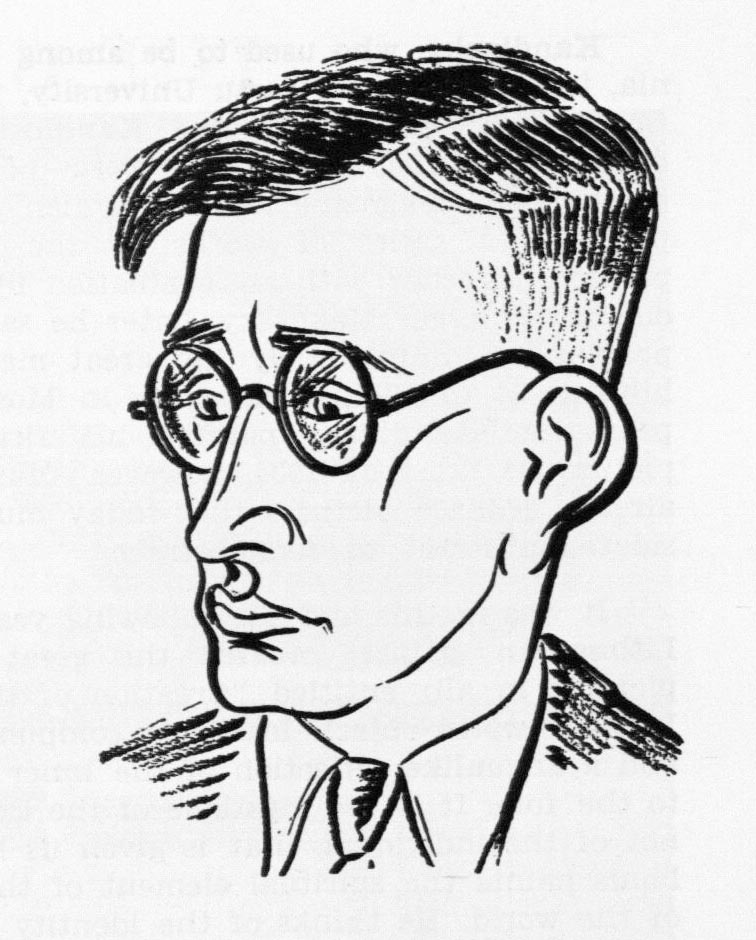
Managing Editor P. V. Vygantas
 |
www.lituanus.org |
|
Copyright
© 1957 Lithuanian
Students Association, Inc.
September,
1957 No.3(12)
Managing Editor P. V. Vygantas |
|
ANTANAS
VAIČIULAITIS
A LYRIC ARTIS
 The writings of Antanas Vaičiulaitis,
one of the most illustrious
Lithuanian "hommes des lettres," reflect an interesting synthesis. They
contain the Lithuanian scene and world feeling, as unique and
unmistakable as the rind of a birch or a song against the evening sky.
But their style is polished by exhaustive study of many Western
literatures and shows a lucidity that is unmistakably Gallic.
The writings of Antanas Vaičiulaitis,
one of the most illustrious
Lithuanian "hommes des lettres," reflect an interesting synthesis. They
contain the Lithuanian scene and world feeling, as unique and
unmistakable as the rind of a birch or a song against the evening sky.
But their style is polished by exhaustive study of many Western
literatures and shows a lucidity that is unmistakably Gallic.
His is a generation which grew up in independent Lithuania after World War I. He is also one of the several Lithuanian writers who, between the wars, established organic and deep-seated bounds with Western cultural heritage, 'ihe comparative method in the history of culture, comparative literature, have always remained his favorites.
The first story of Vaičiulaitis was published 29 years ago. Today he has an impressive list of titles to show: Fiction: VAKARAS SARGO NAMELY (An Evening in the Watchman's Hut) 1932; VIDUDIENIS KAIMO SMUKLĖJ (Noon in a Village Tavern) 1933; VALENTINA 1936; MŪSU MAŽOJI SESUO (Our Little Sister) 1936; PELKIŲ TAKAS (A Path in the Swamp) 1939; KUR BAKŪŽĖ SAMANOTA (Where Is the Moss-covered Cottage) 1947. Travelogues: NUO SIRAKŪZŲ LIGI ŠIAURĖS ELNIO (From Syracuse to the Reindeer) 1937; ITALIJOS VAIZDAI (The Pictures of Italy) 1949. Criticism: NATŪRALIZMAS IR LIETUVIU LITERATŪRA (Naturalism and Lithuanian Literature); LIETUVIŲ LITERATŪROS APŽVALGA (A Survey of Lithuanian Literature). Translations: POEMS, MIGUEL MANARA by Oscar Milosz; THE MAN WHO WEIGHED SOULS by Andre Maurois; THE LIFE OF JESUS by Francois Mauriac, etc. In addition to all this, Vaičiulaitis has written innumerable book reviews, a score of poems and is working on a play. His prestige in the Lithuanian literary world is reflected by the fact that he had been awarded three literary prizes. Translations of his works have brought him to the English, French, German, Italian, Spanish, Finnish, Estonian, Latvian and a few other audiences.
Vaičiulaitis' style is distinguished by its plastic quality. His word is exact, daring, concrete. The verbs, in particular, dance, leap and quiver. His eye is especially enamored of the detail, the microscopic. His ear is sensitive to all shadings of sound. The pattern of his prose is rich with atmosphere and associations.
While the majority of Vaičiulaitis' contemporaries focussed their attention on the ethnographic moment, the social struggle, or the conflict between city and country, his main concern was creating character. Concrete reality, although sharply observed and registered, is of secondary importance to him. Therefore a step into fantasy comes quite naturally to Vaičiulaitis.
The preoccupation with character in Vaičiulaitis' writings stops short of the dramatic approach. The author remains constantly faithful to Apollo and the rumblings of Dlonysiac struggle remain distant and sporadic. He is mainly a lyric story-teller, who treats his people with a smile and gentle humor. The tone of his later stories, perhaps due to the long exile, Is growing more elegiac, but it is far from being dark.
J. Z.